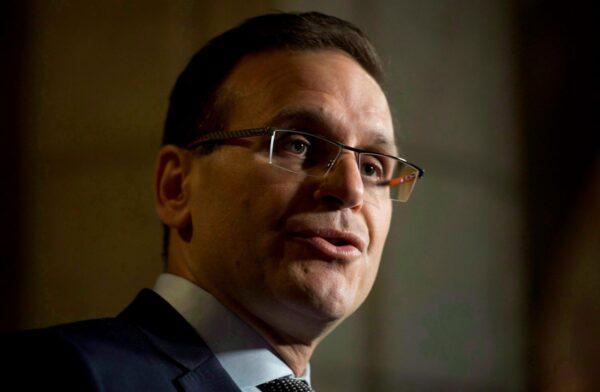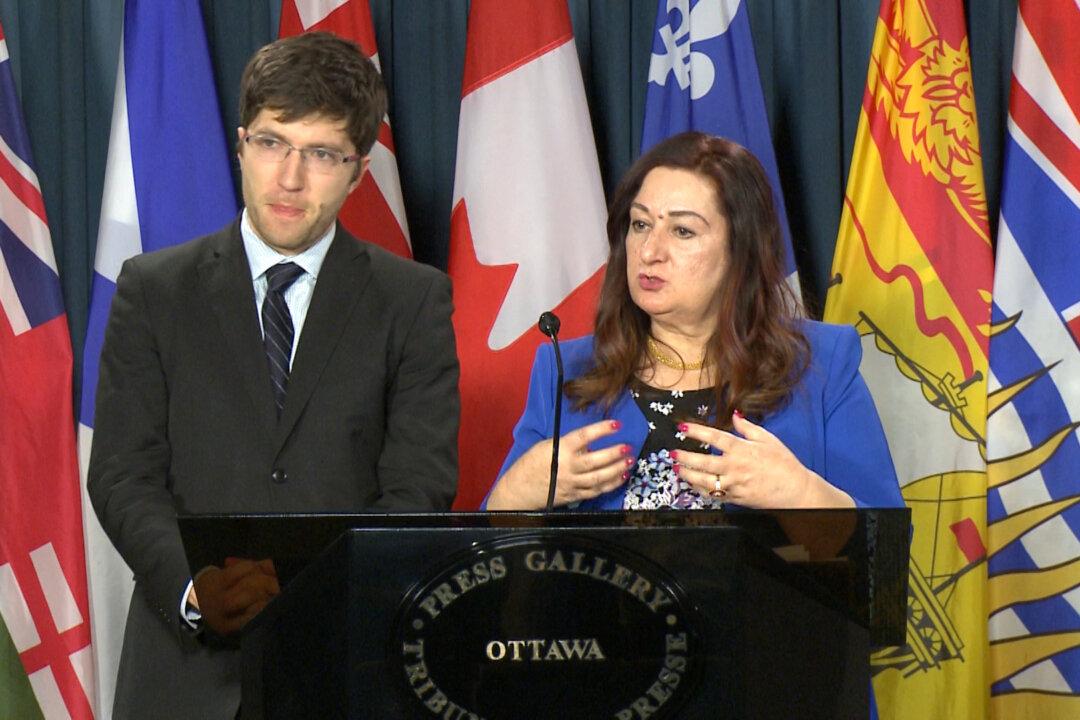As International Human Rights Day and the one-year anniversary of the arrest of two Canadian citizens in China both occurred this week, Canadian senators are launching initiatives that relate to upholding human rights in China.
On Dec. 10, Conservative Sen. Salma Ataullahjan re-introduced a bill she had tabled in the last Parliament to combat international organ trafficking. Conservative Sen. Thanh Hai Ngo and Sen. Leo Housakos are also initiating a Senate motion to urge the government to sanction Chinese officials involved in human rights abuses in China and Hong Kong under the Magnitsky law.
Also this week, the opposition parties voted to approve a Conservative Party proposal to create a special parliamentary committee to examine relations with China. The proposal, which was opposed by the minority Liberal government, was passed with 171 votes for and 148 against.
Organ Trafficking
Ataullahjan’s bill, titled “An Act to amend the Criminal Code and the Immigration and Refugee Protection Act (trafficking in human organs),” makes it illegal for Canadians to get organs abroad without the consent of the donor, and renders people involved in forced organ harvesting inadmissible to Canada.China is the only country where human organs are forcefully removed under a government-sanctioned system. The Epoch Times first broke the news in 2006 about evidence that the Chinese regime was involved in organ harvesting of adherents of Falun Dafa, also known as Falun Gong.
Conservative MP Garnett Genuis, who sponsored the previous bill in the House of Commons in the last Parliament, said in a previous interview that he became involved in the legislation after learning that in certain countries around the world, “but especially in China on an industrial scale,” people are being killed for their organs.
“Sometimes the organs are removed while [the victim] is still alive in a terribly painful process, and those organs are then used for transplantation,” he said.
Liberal MP Arif Virani told the House of Commons on Dec. 10 that the subcommittee on human rights has “looked at things like organ harvesting and some of the really problematic issues that have arisen with Falun Gong.”
Magnitsky Motion
The motion planned by Conservative senators Housakos and Ngo asks that, under the Magnitsky law, sanctions be applied to Chinese and Hong Kong officials responsible for human rights abuses against Hong Kong democracy activists and Uighur Muslims in the Xinjiang region. The legislation is named after the Russian dissident Sergei Magnitsky whose death while in custody in Russia has inspired legislation in countries around the world to apply sanctions such as asset freezes and travel bans on human rights violators.
“It’s meant to hold accountable members of the Chinese and Hong Kong regimes who are trampling upon what are clearly fundamental human rights and the fundamental rule of law,” Housakos said in an interview.
China’s ambassador to Canada, Cong Peiwu, has threatened that Canada can expect “firm countermeasures” if Parliament adopts the motion, following a pattern of increasingly forceful statements by Chinese representatives levelled at Canada.
“Nothing is more egregious than the Chinese ambassador threatening the Canadian government,” says Housakos, adding that Ottawa has not taken adequate action in the face of Beijing’s hostile behaviour.
“We are a G7 country, we have economic leverage, we have political leverage, and it’s high time that Mr. [Prime Minister Justin] Trudeau stands up and defends Canadian values,” he says.
He adds that Beijing treats our allies who have taken a “far more rigid” stance toward China with a lot more respect compared to Ottawa, which “seems to be more of an apologist for their behaviour rather than a country standing up for our values and our principles.”
Ngo says China thinks it can “bully” Canada by threatening disruptions to trade, but it’s important for Ottawa to stand up for the rule of law and human rights.
Not Business as Usual
Housakos says it’s “completely unacceptable” for Canadian elected officials to be carrying on as if it’s “business as usual” while China continues to hold Canadian citizens in custody and violate the human rights of Chinese citizens.On Dec. 7, a group of Canadian elected officials, including Conservative Sen. Victor Oh, Liberal MP Shaun Chen, Ontario MPPs Logan Kanapathi and Aris Babikian, and a number of municipal elected officials attended an event in the Toronto area marking the 70th anniversary of the founding of the communist regime in China, which featured the Chinese Consul general speaking. Defence Minister Harjit Sajjan attended a similar event in Vancouver in September.
Winnipeg Mayor Brian Bowman welcomed Chinese ambassador Cong to his city last week, posting smiling photos of himself and Cong on Twitter and thanking the ambassador for “a productive discussion about our Sister City Chengdu, trade, and Winnipeg’s goal of becoming a leader in the protection and promotion of human rights.”
“It’s completely wrong,” Housakos says.
Ngo says he wouldn’t attend such friendly events with Chinese officials out of principle, as the Beijing regime is a violator of human rights.
“I don’t think it’s acceptable, and I think we should stand for what we believe in.”





